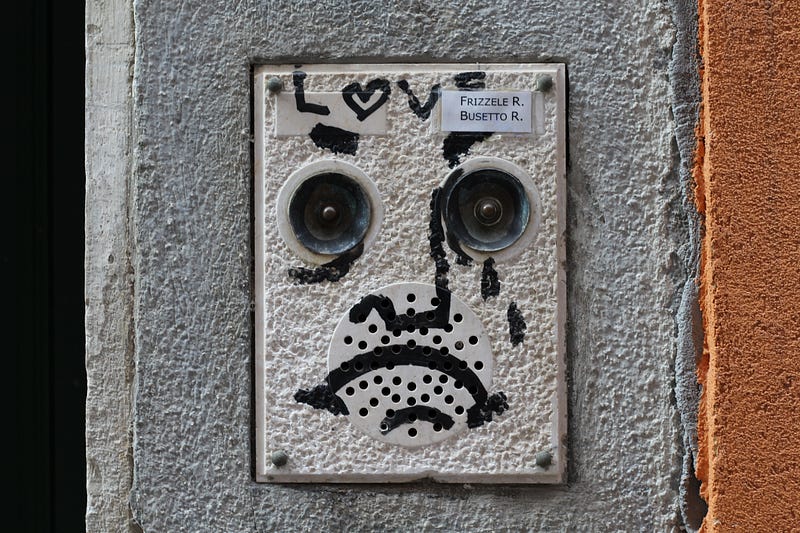The Bell Tolls for Thee
How one word led a 160-year-old doorbell company in Maynard, MA to close its doors.
How one word led a 160-year-old doorbell company in Maynard, MA to close its doors.

(Maynard, MA) — Placing the blame on technology and one word, CEO Charles Slotnick III of Slotnick Bells announced the closing of the 160-year-old family-run doorbell business based in the Maynard clocktower.
Slotnick Bells began in 1860 when Hubert Slotnick nailed an upside-down horseshoe on his home door for people to lift and drop to announce their presence.
As townspeople all around Maynard came to visit, they were captivated by the ingenious contraption Hubert had created. Apparently unable to realize it was just an upside-down horseshow and asked him to create one for their own homes.
Slotnick realized he may be on to something, and thus a business was born.
Leaning into the business, he found a rabid market. Those first few years he was barely able to keep up with the demand. Thankfully, he had a farm with horses so there was an abundance of horseshoes.
As the United States grew and marched its way west, he decided it was time to diversify. After taking one trip, he realized that a sound was needed to call cowboys in for supper, so he created a triangle. To be fair, he didn’t create the brass triangle so much as he found another way to market it.
In a confusing story that involves horses and donkey’s Hubert Slotnick died tragically somewhere on the plains of Nebraska. His body was never found. His will stated that the day to day business of Slotnick Bells was to be handled by his eldest son Charles.
The business continued to grow at a steady pace until Charles died in a polo accident while on his horse, leaving the business to his eldest son also named Charles.
Charles Slotnick II oversaw the electronic expansion of the family's doorbell empire. As the head of Slotnick Bells, he navigated the ebb and flow of the competitive business with a deftness that would’ve made his grandfather proud.
Unfortunately, he died of a ruptured intestine in his horse barn in 1993. Having never married or had children, the family business was transferred to his niece, Abigail.
Abigail Slotnick became the first female CEO of Slotnick in 1993. Based on the companies history and market position, Abigail aggressively looked for outside investors. After spending the go-go 80’s on Wall Street she knew the benefits of mergers and acquisitions.
Abigail was a doorbell Pac-Man as she acquired competitor after competitor. Unfortunately, because of an arcane housing anti-trust law, Slotnick Bells was never able to crack into the lucrative apartment buzzers.
Flush with cash after all the acquisitions, Abigail began aggressively looking to find a way around the anti-trust law.
As the new century dawned, and the anti-trust battle dragged on, Abigail had the foresight to see the expansion and evolution of cell phones. A lifelong music fan she even saw a time when doorbell ringing might be replaced by music. Unfortunately, she signed an exclusive deal with the English funk band Jamiroquai.
Ill-timed and poorly structured, this deal almost caused the company to implode. Reading the writing on the wall, Abigail retired and passed the now debt-ridden and struggling business to her son, Charles III.
Timing would not be on Slotnick Bells' side this time around.
Just as the Harvard educated Charles III wrangled free of the Jamiroquai contract, he saw a light at the end of the tunnel. Unfortunately, that light was Steve Jobs and the Apple iPhone.
The rapid upswing in texting between people was the death knell for not only Slotnick Bells but the entire doorbell and apartment buzzer business.
Last Thursday I met with the CEO in his first-floor office. As he twirled his flip phone on his desk he remarked: “It’s those darn kids and their Apple phones that did my business in.”
When I asked how he said:
“Because no one rings doorbells anymore, they simply text ‘Here’. ”
Slotnick Bells closes its doors for good on December 7.




